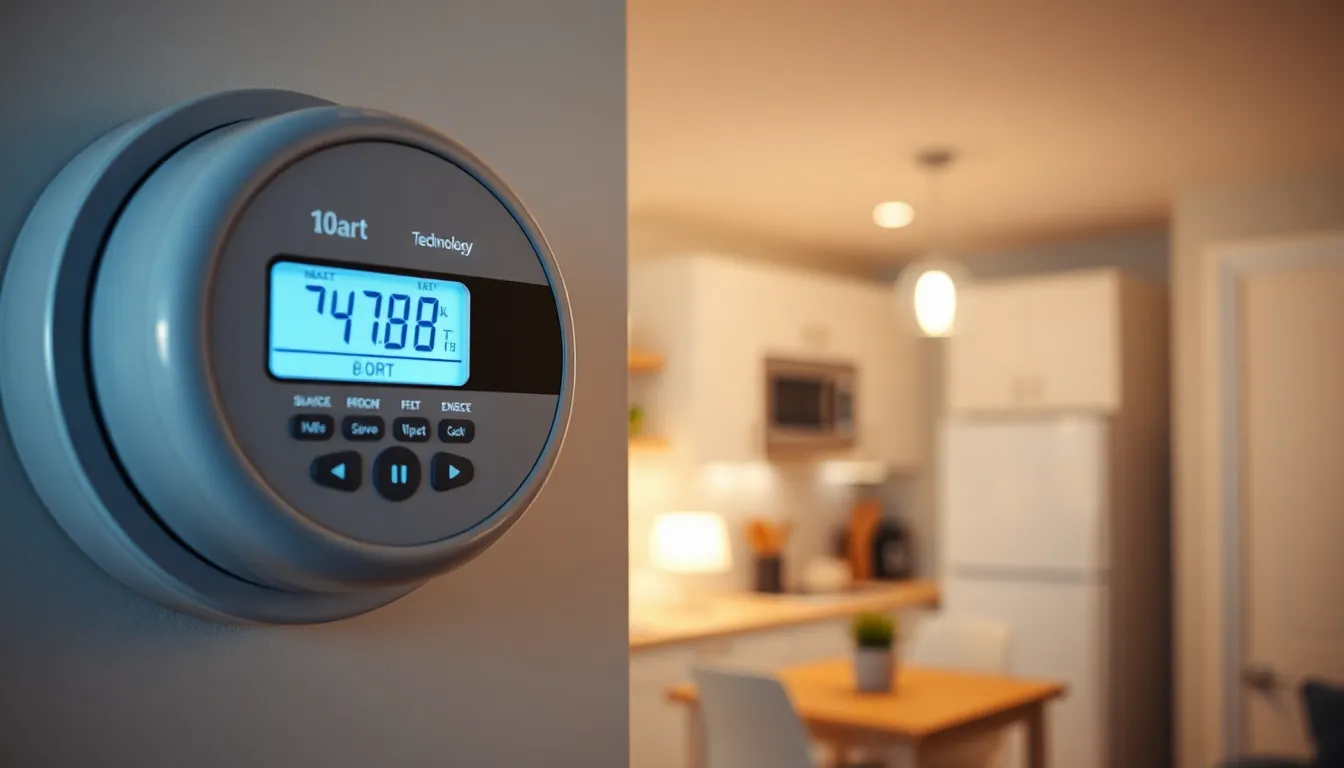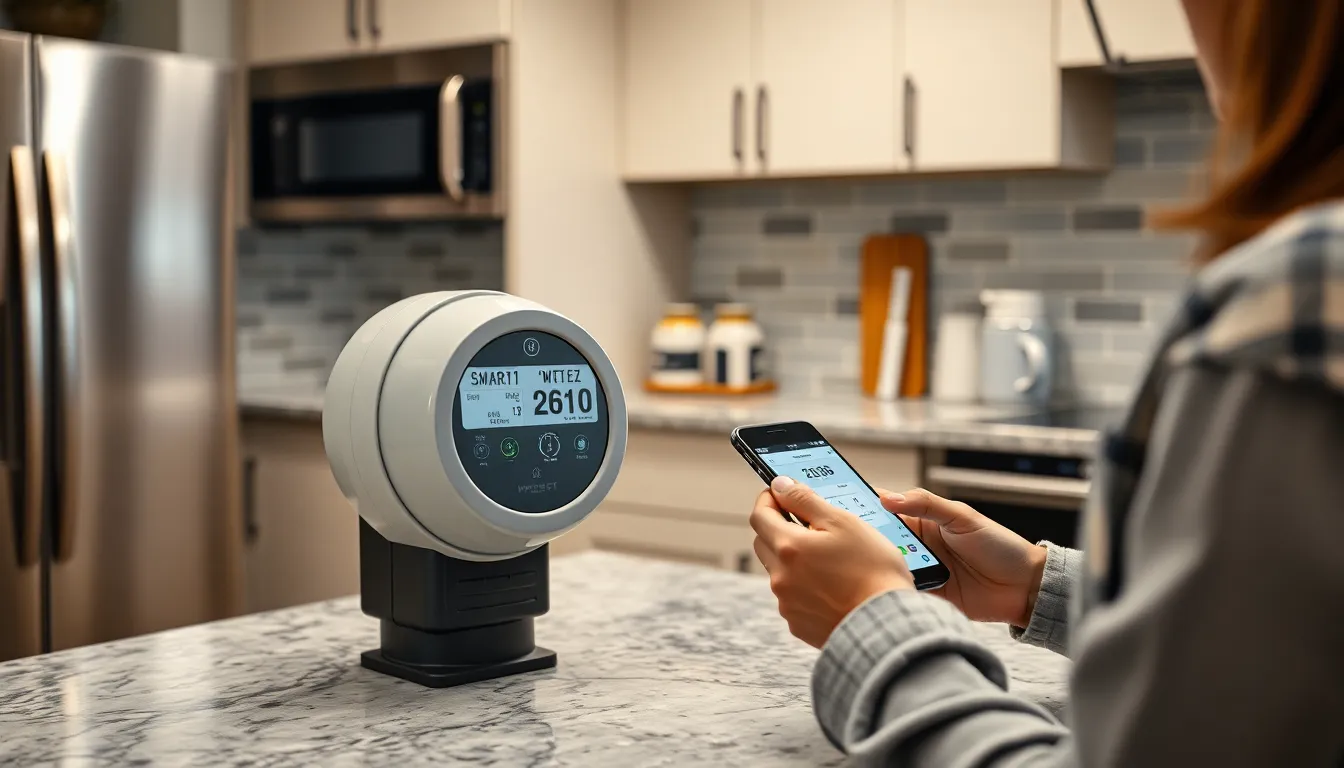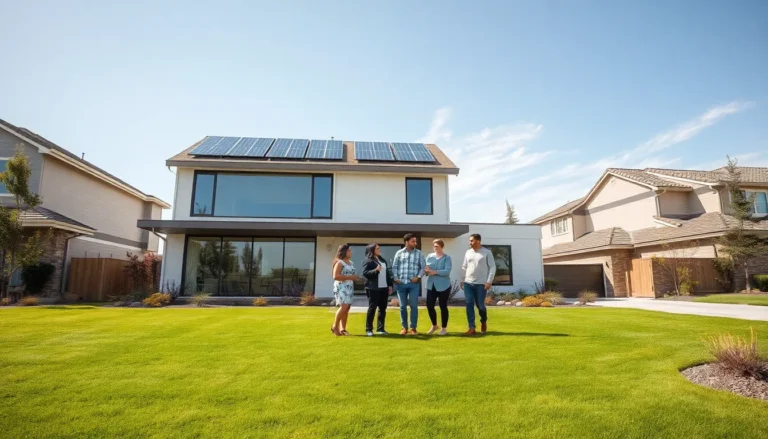Table of Contents
ToggleIn a world where everything seems to be getting smarter, why should your energy meter be left out? Smart metering devices are revolutionizing how households and businesses track their energy consumption. Forget about those old-school dials that require a PhD in engineering to decipher. These nifty gadgets not only make monitoring energy use a breeze but also help save money and the planet—talk about a win-win!
Imagine knowing exactly how much energy your toaster is guzzling while you enjoy your morning coffee. With real-time data at your fingertips, you can make informed decisions that might just turn you into the eco-warrior you never knew you could be. So buckle up as we dive into the world of smart metering devices, where technology meets sustainability and saving a few bucks is just a click away.
Overview of Smart Metering Devices
Smart metering devices offer advanced technology for monitoring energy consumption in real-time. These devices replace traditional meters, allowing consumers to track their usage more accurately. They provide detailed data through user-friendly interfaces, enhancing understanding of energy habits.
Real-time monitoring enables users to adjust their energy consumption behaviors. By receiving instant feedback, they can identify peak usage times and modify habits to save money. This adaptive usage leads to significant cost savings over time.
Different types of smart metering devices exist, including electricity, gas, and water meters. Each type is designed to collect specific data relevant to its function. Collectively, these devices contribute to effective resource management and sustainability efforts.
Integrating smart metering systems with home automation technology improves energy efficiency even further. Many systems offer compatibility with mobile applications, enabling users to manage energy remotely. This level of control allows for energy conservation even when away from home.
Benefits extend beyond individual households, as smart meters facilitate better grid management. Utilities gain access to real-time data, which helps in predicting demand and effectively managing resources. Enhanced grid reliability results from this proactive approach, fostering sustainability on a larger scale.
Smart metering devices revolutionize energy consumption monitoring. These modern solutions empower users to make informed decisions, cut costs, and promote environmental sustainability. Adopting such technology represents a significant step toward a more efficient energy future.
Benefits of Smart Metering Devices
Smart metering devices offer numerous advantages that enhance energy usage for both households and businesses. These benefits include improved energy management and significant cost savings.
Enhanced Energy Management
Enhanced energy management stands out as a primary advantage of smart metering devices. Real-time monitoring allows users to view energy consumption patterns promptly. Devices transmit data wirelessly, enabling instant access to information. Users can analyze their energy habits to identify areas for improvement. Additionally, integration with home automation systems optimizes energy efficiency across all devices. By adjusting settings based on real-time data, consumers can respond dynamically to their energy needs.
Cost Savings for Consumers
Cost savings for consumers represent a critical benefit of smart metering devices. These devices provide detailed insights into energy consumption, allowing users to adjust their habits accordingly. With accurate readings, consumers can avoid unexpected charges. Many utility companies offer incentives for users who lower consumption during peak hours. Over time, such adjustments lead to smaller energy bills. Regular feedback encourages users to adopt energy-saving practices, substantially reducing overall costs.
Types of Smart Metering Devices
Smart metering devices come in various types, catering to different utilities. Each type plays a critical role in energy and resource management.
Electric Smart Meters
Electric smart meters monitor electricity consumption in real time. These devices track usage data in intervals, providing consumers with insights into their energy habits. Users can view information on their devices or mobile applications, enabling immediate adjustments to their consumption patterns. With improved accuracy, households can minimize unexpected bills and manage peak usage more effectively. Utility companies benefit as well, receiving data that helps optimize energy distribution and predict demand.
Water Smart Meters
Water smart meters measure water usage, aiding conservation efforts. These devices record data on daily consumption, highlighting usage trends for consumers. They help identify leaks and inefficiencies, prompting timely repairs. Integration with mobile platforms allows users to receive alerts about unusual usage patterns. This proactive management contributes to significant water savings and enhances resource sustainability. Utilities benefit from real-time data that informs infrastructure maintenance and resource allocation.
Gas Smart Meters
Gas smart meters track natural gas usage with high precision. These advanced meters provide hourly consumption data, giving consumers the ability to adjust their gas usage based on real-time insights. Early leak detection enhances safety and helps prevent waste. Compatibility with home automation systems allows for optimized heating and appliance use. Utilities gain a clearer understanding of demand patterns, enabling efficient gas supply management. Overall, gas meters empower consumers to reduce costs and support sustainable energy practices.
Challenges and Limitations
Smart metering devices present several challenges and limitations that warrant consideration.
Privacy Concerns
Privacy concerns arise when personal data, such as energy usage patterns, becomes accessible. Utility companies often collect this data, leading to questions about how it’s stored and who has access. Consumers fear unauthorized access, which could result in identity theft or targeted advertising. Moreover, the transmission of data requires secure networks to prevent interception by cybercriminals. Transparency in data handling practices becomes crucial in addressing consumer hesitations. Establishing clear data protection policies enables users to understand how their information is used and safeguarded, ultimately fostering trust in smart meter technologies.
Implementation Costs
Implementation costs pose significant barriers for consumers and utility companies. Initial expenses include purchasing and installing metering devices, which can sometimes exceed budget constraints. Ongoing operational costs arise from maintaining and upgrading these systems, placing additional strain on financial resources. Utilities may pass on these costs to consumers via higher rates, leading to resistance against adopting smart meters. Nevertheless, these expenses must be weighed against long-term savings from energy efficiency and reduced waste. Incentive programs from government agencies can alleviate some financial burdens, encouraging broader adoption.
Conclusion
Smart metering devices represent a pivotal advancement in energy management. They empower consumers to take control of their energy usage while promoting cost savings and environmental sustainability. By offering real-time insights into consumption patterns these devices not only enhance individual accountability but also contribute to broader grid efficiency.
Despite challenges like privacy concerns and implementation costs the long-term benefits of smart metering are undeniable. As technology continues to evolve and more consumers adopt these devices the future of energy management looks brighter. Embracing smart metering technology is a critical step toward a more efficient and sustainable energy landscape.








